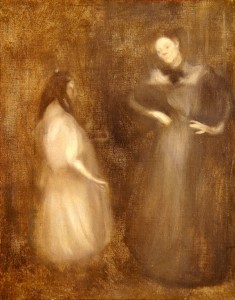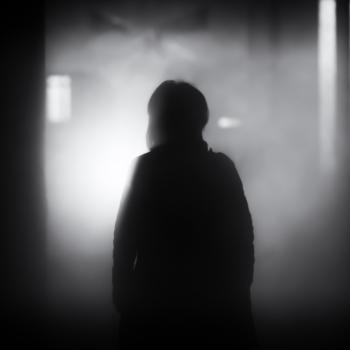 It came to me one quiet afternoon, a couple weeks after we were home from the hospital, my newborn son asleep on my chest, the flicker of memory sharp and quick: I see my mother’s mouth wagging, furious, the garbage can full to overflowing, my brother’s task left undone.
It came to me one quiet afternoon, a couple weeks after we were home from the hospital, my newborn son asleep on my chest, the flicker of memory sharp and quick: I see my mother’s mouth wagging, furious, the garbage can full to overflowing, my brother’s task left undone.
“Are you stupid? Is that it?” she screams, stepping toward my brother, who can’t be more than eleven, his mouth torn open by sobs, the light passing through the windows flat, gray, engulfing. “Answer me!”
I step in front of her, hot with fear and rage, and everything goes blank.
When I found out I was pregnant, I knew that I was about to begin another series of careful negotiations; the lines I had drawn between myself and my parents would have to be crossed and redrawn, possibly many times over.
What I did not know was how hard parenthood would be on my memory, how the bits and pieces of what I remember would hurl themselves at me with such raw, shocking force.
I did not realize how becoming a mother would turn me into a child, or at least, return me to my childhood, my own mouth torn open in recollection’s rush and grief.
As a writer, my subject is my family and personal history. I spent most of high school writing short stories that were really just veiled nonfiction, the narrators always teenagers who watched their parents self-destruct. When I began writing nonfiction, my essays were dotted with words like “codependent” and “emotional trigger,” phrases that my mother strung around her like a rosary, a self-help litany of protection against what she couldn’t face about herself.
As I wrote more, the focus became clearer, and my parents began becoming more themselves on the page, less psychological study or sensational stereotype, more fragile and demanding and dangerous.
That is how my parents are in real life, too—as they get older, their wounds and trespasses seem to multiply, and it can be a daily fight to interpret their intentions, their capacity for both impotence and causing hurt.
I once heard a sermon on the Ten Commandments that dealt specifically with “You shall honor your mother and father,” words that haunted me as I wrote to make sense of my parents and our life. The preacher said that honoring someone meant recognizing who they were as human beings, to tell the truth about who they were. And that meant that you didn’t skirt around the facts—that you were abused, or hated, or left to lift your mother’s drunken body off the kitchen floor. You did it with fear and trembling, but you told the truth.
And the truth is this: when my mother came to visit us and meet her grandson, she was terrified of holding him. I coaxed and coached her, unsure how a woman who had borne four children could have forgotten how to cradle an infant. Early on her new role as “Grammie” hadn’t skyrocketed her into ordering me around.
But at some point, she lost her fear, and that is when it began to go wrong. Maybe it was her insistence on making us food, something that “moms were supposed to do for their daughters and newborn babies,” or the way I let her take over my kitchen, grateful for the homemade soup but still wary, that set things on edge.
Because the moment that my mother felt the most confident, the most mom-like, the most in control, was the moment that she was the most unstable, dangling my son from her left arm, my husband leaping from the chair to catch him.
“I’m sorry you don’t trust me,” she spat at me later, angry that I said she was dropping him, angry at my anger in spite of the pot of soup on the stove, the sixty dollars spent on groceries. She sucked her teeth and sat on the front porch in the falling night and I knew, right then and there, that we had redrawn another line between us.
What returns me to my childhood is the fact that—in the face of my mother’s conclusions about her own childhood and marriage to my father—I found myself picking up her pieces, my days spent doing laundry, offering advice, being motherly. I did this by compulsion, but also by choice; I could not bear to be alone, and could not bear to watch everything fall apart.
I retell the memory of my mother and brother to my husband. I say that I step in front of my mother, who would have surely struck my brother, and…
“And what, Allison?” Jeremy says to me, quiet, direct.
And I start sobbing all over again, my tears soaking my son’s neck, his face turned up to me, his eyes closed in sleep. I cannot remember anything else, but I sob and sob and Jeremy kneels next to me, his arms around us, our son’s small body a steady weight against me.
In my family, we each carry shards of memory that keep trying to piece themselves together, and sometimes the pieces click in strange places and we are left to determine what happened and how we will go on in the face of what we can’t remember, what we cannot predict.
The morning after my mother’s incident, I brought her a cup of coffee. She was sitting on our front porch, smoking, and when I opened the door, she shrank back, her face scared, her hands lifted in defense. “I’m sorry,” she said for being in the way of the door, and it was clear the remorse she felt extended beyond what she can say and do. She is just as much child as I am.
And I cannot help but love her, even as I remember, even as the truth leaves me trembling.
Allison Backous Troy teaches at Kuyper College in Grand Rapids, Michigan, and is the creative writing editor for The Other Journal. She graduated from the Seattle Pacific University’s Master of Fine Arts in Creative Writing program in 2009.
Art Pictured: Eugene Carriere. Mother and daughter, the violin lesson. © Bridgeman Art Library / Private Collection / Photo © Peter Nahum at The Leicester Galleries, London.











